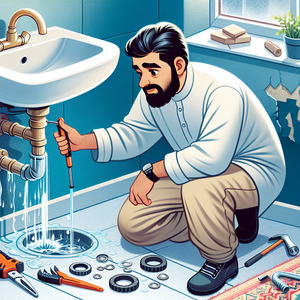Beyond the Scrubs: The Hidden Benefits of Being a Travel Sterile Processing Technician

One of the most significant and often overlooked benefits of being a travel sterile processing technician is the chance to cultivate an extensive professional network. Traveling between various healthcare facilities allows technicians to engage and collaborate with a diverse range of professionals across different specialties and regions. For instance, a technician stationed in a bustling urban hospital may encounter surgeons, nurses, and healthcare administrators, each offering unique insights into patient care and sterile processing protocols. These interactions can lead to valuable exchanges of information, best practices, and enduring professional relationships. Sarah, a seasoned travel technician with over five years of experience, emphasizes the importance of networking: “I've met some incredible people on my assignments. One connection led to a job offer in a different state, which I wouldn’t have considered if I hadn’t met that person while working in a different facility.” Such testimonials underscore the potential for professional advancement that comes from stepping outside one’s local environment.
Skill Diversification
Travel sterile processing technicians are often exposed to a variety of healthcare environments, ranging from small rural clinics to expansive metropolitan hospitals. Each setting presents distinct challenges and opportunities that contribute to skill diversification. For example, a technician may master advanced sterilization techniques in a high-volume surgical center, only to apply that expertise in a facility with fewer resources. This not only enhances their technical capabilities but also cultivates adaptability and critical problem-solving skills. Furthermore, the exposure to diverse equipment and procedural protocols allows technicians to become well-rounded professionals. John, another travel technician, shares his perspective: “Every assignment has taught me something new. I've gained expertise in different sterilization technologies and learned how to navigate various software systems for tracking instruments.” This continuous learning process empowers technicians to remain adaptable and competitive in a rapidly evolving field.
Personal Growth
The experience of traveling for work can be profoundly transformative, extending beyond professional development into the realm of personal growth. For many travel technicians, the opportunity to explore new cities and cultures can lead to an enriched and broadened worldview. Living in different locations fosters immersion in local traditions, cuisines, and lifestyles, contributing to increased cultural competence—an essential skill in today’s diverse healthcare landscape. The challenge of adapting to new environments can also bolster confidence and resilience. Emily, a travel technician who recently took an assignment in California, reflects on her journey: “Moving to a new place every few months can be daunting, but it has pushed me out of my comfort zone. I've become more independent, made new friends, and even picked up some Spanish to better communicate with my colleagues and patients.” Such personal development not only enhances a technician’s professional interactions but also enriches their personal life.
While the role of a sterile processing technician is critical to ensuring patient safety and surgical success, the advantages of pursuing a travel-focused career in this field extend far beyond the technical responsibilities. From building valuable professional connections and diversifying skill sets to fostering personal growth and cultural awareness, travel sterile processing technicians engage in a multifaceted journey that enhances both their careers and their lives. For individuals contemplating a career in sterile processing, embracing the opportunity to travel can lead to a dynamic and fulfilling professional path—one that is both rewarding and enlightening. The hidden benefits of this career choice are as profound as they are varied, promising a rich tapestry of experiences that contribute to both professional excellence and personal enrichment.
Travel Sterile Processing Technician
Travel nursing agencies, hospitals, surgical centers, and outpatient clinics
Core Responsibilities
Ensure the proper cleaning, sterilization, and preparation of surgical instruments and equipment in various healthcare settings.
Adapt quickly to different sterilization protocols and equipment used in diverse facilities.
Collaborate with surgical teams to assess and meet their sterilization needs effectively.
Required Skills
Proficiency in operating sterilization machines and understanding infection control standards.
Strong problem-solving skills and adaptability to new working environments.
Certification such as Certified Registered Central Service Technician (CRCST) or equivalent.
Surgical Instrument Technician
Hospitals, surgical centers, and instrument manufacturers
Core Responsibilities
Inspect, repair, and maintain surgical instruments to ensure they meet safety standards.
Develop and implement inventory management systems for tracking instruments in surgical units.
Provide training and support to surgical staff on the proper use of instruments.
Required Skills
In-depth knowledge of surgical instruments and their maintenance.
Strong attention to detail and organizational skills.
Relevant certifications such as the Certified Surgical Technologist (CST) may be beneficial.
Sterilization Specialist
Hospitals, specialty clinics, and healthcare consulting firms
Core Responsibilities
Conduct routine quality assurance checks on sterilization equipment and processes to ensure compliance with regulations.
Develop sterilization protocols and training programs for staff in healthcare facilities.
Monitor and document sterilization cycles and outcomes for quality control purposes.
Required Skills
Expertise in sterilization methods such as steam, ethylene oxide, and hydrogen peroxide.
Familiarity with regulatory frameworks, including OSHA and AAMI standards.
Certification from a recognized body (e.g., Certification Board for Sterile Processing and Distribution).
Infection Control Practitioner
Hospitals, long-term care facilities, and public health organizations
Core Responsibilities
Develop and implement infection prevention policies and procedures in healthcare facilities.
Conduct surveillance and analysis of infection data to identify trends and implement corrective actions.
Educate staff on best practices for infection control and prevention strategies.
Required Skills
Strong analytical skills and the ability to interpret complex data related to infection rates.
Knowledge of microbiology and epidemiology as they relate to infection control.
Relevant certifications such as the Certification in Infection Control (CIC).
Central Service Manager
Hospitals, surgical centers, and healthcare systems
Core Responsibilities
Oversee the operations of the central sterile supply department, ensuring efficient workflow and compliance with safety standards.
Manage staff training, performance evaluations, and professional development initiatives.
Collaborate with surgical teams to optimize instrument availability and turnaround times.
Required Skills
Strong leadership and management capabilities, with experience in healthcare operations.
In-depth knowledge of sterilization processes, equipment, and regulatory requirements.
Certifications such as Certified Healthcare Leader (CHL) or similar are often preferred.


